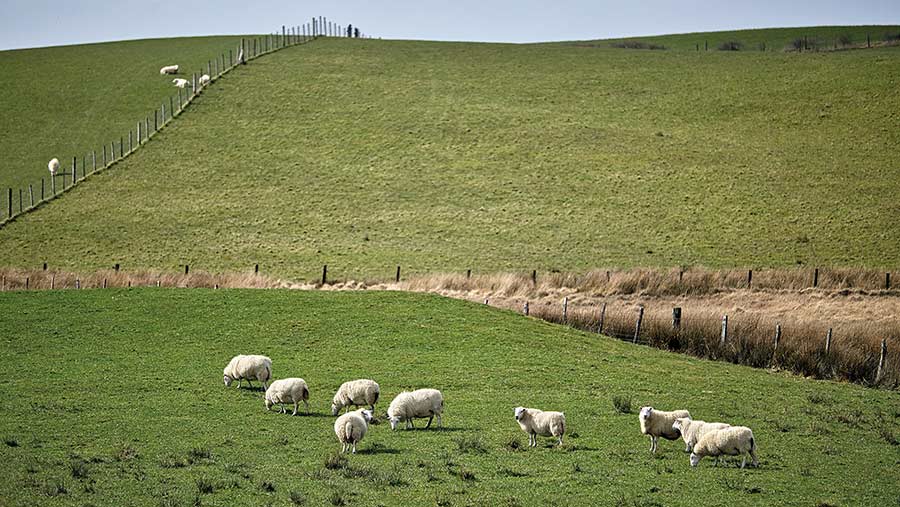Transition Farmer update: Irwel Jones cuts reliance on inputs
 Tregaron-type Welsh Mountain sheep © Richard Stanton
Tregaron-type Welsh Mountain sheep © Richard Stanton Beef and sheep producer Irwel Jones has made steady progress towards a key transition aim of reducing the farm’s reliance on volatile inputs.
With feed, fuel and fertiliser prices still close to their record peak, Mr Jones has tweaked stock numbers and the land area at the 375ha Aberbranddu Farm, near Llanwrda, Carmarthenshire. This has helped limit the financial effect of fertiliser price rises.
An opportunity arose, in the late spring, to take on a short-term grazing let on 40ha of less-favoured area land next to the farm.
See also: Staffing and soil health key transition aims for suckler farm
The land was available for an 11-month period and the extra grazing area has allowed more flexible stocking, says Mr Jones.
Reduced fertiliser rates
This has provided scope to reduce fertiliser rates on existing fields. Normally a total of about 45t of fertiliser is spread across the farm’s grazing and swedes areas. But with the extra land easing the grazing pressure, total fertiliser rates have been cut to just 16t.
As well as the extra land, the reduction is due to more targeted fertiliser applications to the farm’s better land, where it will achieve the best results.
Only 150ha of the total 375ha is improved, the rest is rough grazing or woodland.
Overall, Mr Jones estimates that the reduction in applications has saved the business about £1,500.

Transition Farmer Irwel Jones © Richard Stanton
Stock numbers
The flock of 1,500 Tregaron-type Welsh Mountain ewes has also been reduced slightly by 100 head.
According to Mr Jones this will further ease the pressure on the land in anticipation of fertiliser prices remaining high in a still-disrupted energy market. The sheep flock will, however, be bolstered by more replacements carried into winter.
“We have more ewe lambs this year, so we will carry 500 into the winter,” he says. These will either be retained or sold depending on how the market pans out over the winter months.
Beef numbers taken through the winter will also be managed differently this year. The farm’s 34 dairy-beef finishers will be sold off through the autumn as normal. But the usual practice of replacing them with youngstock almost immediately will not go ahead.
Instead, they will likely not be replaced until next spring and, even then, Mr Jones expects to buy reduced numbers. This is again a bid to ease management to allow time to plan ahead for other transition aims.
Extra flexibility
It will also provide an opportunity to bank some baled silage normally fed to the youngstock through the winter. About 100 bales will be held over for the following winter or sold if the forage market is strong in the winter months.
“Basically, we are creating extra flexibility across the whole system so we don’t get stuck if input costs continue to stay high or rise again,” says Mr Jones.
